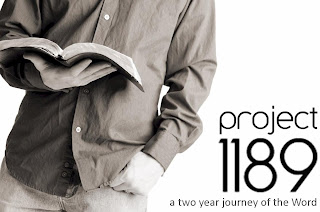So Joshua took all that land, the hill country and all the Negeb and all the land of Goshen and the lowland and the Arabah and the hill country of Israel and its lowland from Mount Halak, which rises toward Seir, as far as Baal-gad in the Valley of Lebanon below Mount Hermon. And he captured all their kings and struck them and put them to death. Joshua made war a long time with all those kings. There was not a city that made peace with the people of Israel except the Hivites, the inhabitants of Gibeon. They took them all in battle. For it was the LORD’s doing to harden their hearts that they should come against Israel in battle, in order that they should be devoted to destruction and should receive no mercy but be destroyed, just as the LORD commanded Moses. Joshua 11:16-20 ESV
“Those stories about Africa, about you, they’re true aren’t they?”
“It doesn’t matter.”
“It does too. Around my mom all I hear is lies…I don’t know what to believe.”
“Damn, if you want to believe in something, believe in it. Just because something’s not true doesn’t mean you can’t believe in it. There’s a long speech I give to young men, sounds like you need to hear a piece of it. Just a piece. Sometimes the things that may or may not be true may be the things that a man needs to believe in the most…that people are basically good…that honor, courage and virtue mean everything…that money and power, power and money, mean nothing…that good always triumphs over evil…and, I want you to remember this, that love, true love, never dies…you remember that, boy, you remember that…it doesn’t matter if it’s true or not, you see, a man should believe in those things because those are the things worth believing in…got that?”
“That was a good speech.”
This is a key exchange in
Secondhand Lions between Uncle Hub and his young nephew Walter. The film revolves around some rather spectacular tales of adventure and daring-do, as well as a romantic love won and lost. Other opinions had circulated about Hub and his brother Garth, and the tales they tell simply seem impossible to believe. Yet Walter holds the picture of the heroine, Jasmine, which captures his imagination. Finally he just has to know: Is the story true?
Reading Joshua, and then reading about Joshua this past week, I was confronted with the same question.
Is the story true?
One of the books I’m occasionally dipping into on this journey just for a different perspective, is
How to Read the Bible by James Kugel. It’s a book I would have been far too insecure to read in my college days or in my early days of ministry, just from the questions it asks and the possibilities it isn’t afraid to explore.
Reading his chapter on Joshua and the Conquest of Canaan brought me face to face with questions I knew about but had never actually waded through. But into the stream I went (I’m finding that books are the one place in which I can truly be adventurous). And so I waded into Kugel’s explorations about Joshua with such observations as this:
The book of Joshua clearly relates that the Israelites replaced the native Canaanites, but it presents no clear picture of what happened to that earlier population. There are no reports of massive emigration at the time of the emergence of Israel (and no evidence of such emigration elsewhere); there is little reason, scholars say, to believe that the native populations were simply slaughtered and buried somewhere. Indeed, the book of Judges itself mentions the numerous places in Canaan where “the Canaanites continued to live” among the Israelites or – equally surprising – where the Israelites lived “in the midst of the Canaanites” (Judges 1:27-35; 3:5-6). To this point most archaeologists add that during the whole period when Israel might have emerged (that is, between 1300 and 1000 BCE), there is in fact no evidence of any sizeable influx of people into the region, save for that of the coast-dwelling Philistines. Kugel, p. 382
Kugel goes on to relate the absence of evidence for the violent destruction of cities during this period (there is evidence, he says, of destruction earlier and later, but not in the chronology the Bible seems to present). The absence of corroborating evidence leads him to explore alternative theories concerning Israel’s origin. There’s the one about them coming from peaceful, nomadic tribes that gradually emigrated into the area we now know as Israel (ala Abraham’s story in Genesis) with the story of dramatic conquest then being a cultural invention to give these scattered tribes a national and religious identity. Then there’s the theory that the Israelites were themselves Canaanite revolutionaries known as the ‘apiru who were dissatisfied with the Egyptian hegemony that operated in Canaan through a network of puppets and vassals. “The disgruntled ‘apiru and other disgruntled elements eventually overthrew these entrenched powers and took over,” Kugel says. The Amarna Letters (actually 382 stone tablets of Egyptian records discovered towards the end of the 19th century at El Amarna in Egypt), he relates, “frequently mention the danger of people being joined to the ‘apiru, suggesting that there was some grassroots movement afoot. In one of the passages, the trembling ruler confesses, ‘Look, I am afraid the peasantry will strike me down.’ This too might suggest some sort of popular revolt.”
In conjunction with this, Kugel states that “Archaeologists have found that the central highlands of Canaan were settled relatively sparsely in the Late Bronze Age. Thereafter, however, the region experienced a sudden boost in population: starting around 1200 BCE, the number and density of permanent settlements in the Canaanite highlands increased dramatically. In just a generation or two, a network of roughly 250 highland settlements sprang up. Settlements continued to increase for a time thereafter. Interestingly, this spurt in highland settlements seems to have accompanied the depopulation of previously thriving Canaanite urban centers: just as suddenly, it seems, the cities in this same period dropped to less than half the number of their former inhabitants.”
So how do I reconcile all this? Some things seem to harmonize with available evidence while others clearly don’t. How do I sync the Joshua story with what the archaeologist’s spade hasn’t found – at least not yet? And if we can’t sync it are we sunk – and the Bible with us?
Just how much does my believing depend on my seeing?
Do I have to find (or rather read the reports of someone else finding) the ark to believe Genesis 6-8?
Do I have to find evidence of toppled walls that can with surety be dated to the period 1300-1000 BC to believe Joshua 6?
Do I have to find a scientific rationale or corroborating empirical evidence for the sun and moon stopping in the sky for a full day to believe and embrace Joshua 10?
In our inerrancy debates we fight with proverbial might and main to justify and prove the Bible and its truth empirically, putting it into the test tube of modern scientific and critical thought. In doing so have we in fact followed our “educated and enlightened” culture up the wrong, modern western culture tree – or into postmodern shrubbery? Am I converted in the scientist’s laboratory, in the archaeologist’s latest dig, in the historian’s accredited chair?
Do I only eat the entire scroll after it’s veracity has been empirically demonstrated to my reason’s satisfaction?
Do I vomit up the scroll, or those portions of it, when someone’s latest discovery or cultural innovation invalidates it – only to lick up my own vomit when the next discovery or innovation re-validates it?
Or does believing, in fact, run much deeper than that? Does truth run much deeper than that?
“Blessed are those who do not see, and yet believe.”
What I realized – again – is that I have chosen to eat the entire scroll, and I’m not going to selectively vomit portions up that seem disagreeable to me or unverifiable to others. After reading Kugel I looked into some other sources like the
NIV Archaeological Bible which essentially confirms that we have no idea when anything happened, for sure, when it comes to the Exodus or the conquest, because of the absence of clear corroborating evidence that pinpoints anything. So we simply don’t know. We can’t put the conquest into a test tube and verify it. And I realized that simply isn’t necessary for me – that in fact it would be disappointing to me on some levels if we did find the ark on Ararat or the fallen walls around Jericho. I believe and love a God who hides himself, so I would expect him to hide his tracks.
And yet, in the midst of all these proffered theories about Joshua and Israelite origin, here stands Kugel’s summation of the scholars’ conclusions: “Most scholars today would probably admit (some grudgingly) that we will probably never know exactly where the people of Israel came from or how they got started on their separate existence. There is some merit to all of the theories mentioned, they say, but none of them alone can decisively account for all the biblical and extrabiblical data. One thing is clear, however: something must have happened.”
Which brings me back full circle to Uncle Hub and his “long speech that I give to young men.”
“You remember that, boy, you remember that…it doesn’t matter if it’s true or not, you see, a man should believe in those things because those are the things worth believing in…got that?”
That fact is that despite Hub’s somewhat obtuse answer to the question, “Is the story true?”, at the film's end real, tangible corroborating evidence literally lands from the sky and verifies the entire story to a now much older Walter. But the fact is, Walter was only told what he already knew.
They really lived.













